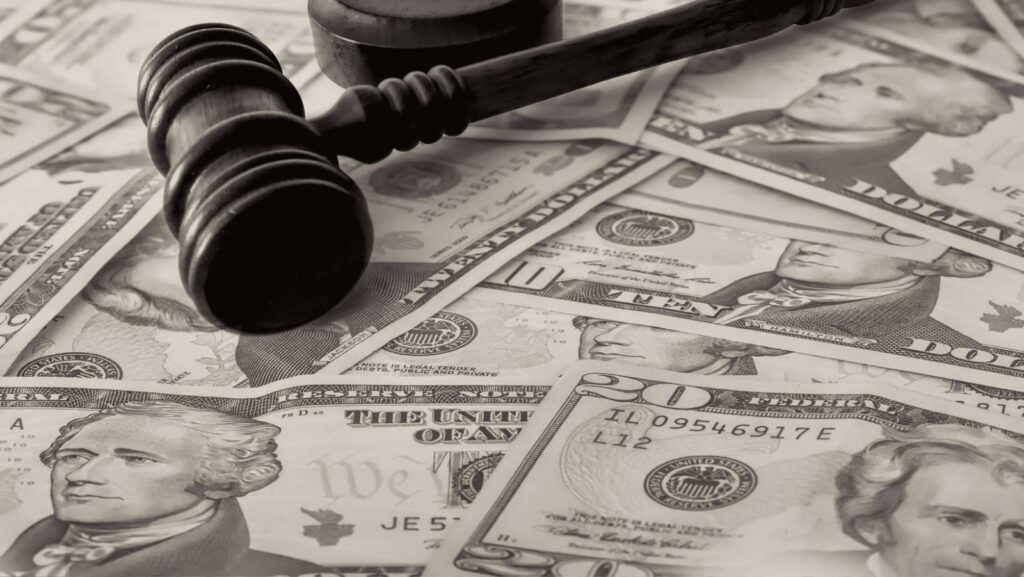
In April 2020, Huawei Technologies Co. Ltd. (Huawei) filed several lawsuits against Verizon Communications Inc., (Verizon). The personal action was prompted by allegations that Verizon was using patents owned by Huawei without legal authorization or payment of licensing fees. The actions covered a variety of telecommunications network technologies including user interface software and signal processing techniques.
Huawei, one of the world’s leading suppliers of broadband infrastructure, has accused Verizon of using its patented technologies without obtaining the appropriate licences. The company claimed that Verizon had violated nearly a dozen existing patents about core network elements and applications that are essential to the functioning and performance of its mobile technology systems and their devices. This includes 5G cellular technology, 4G mobile phones, tablets, smartphones and more.
The lawsuit further claims that despite comprehensive negotiations between the two parties for a long-term licence agreement on the use of Huawei’s patented technologies in Verizon products or services, these talks were unsuccessful due to an alleged refusal from Verizon to enter into any sort of meaningful agreement. As such, Huawei needed to file these lawsuits to protect its patents from unlicensed use and potential infringement on existing intellectual property rights about wireless technology solutions now being introduced worldwide.
Huawei Settles Two Patent Lawsuits It Filed Against Verizon
In 2019, Huawei Technologies Co Ltd, the Chinese tech giant, filed two patent lawsuits against US-based Verizon Communications Inc in courts in Texas and Delaware. The lawsuits alleged that Verizon infringed on more than a dozen of Huawei’s patents related to cellular communications, video transmission, and cloud-computing technologies. Huawei was seeking damages for those patent abuses. After much negotiation, the two companies finally settled the patent lawsuits in April 2021. Let’s look at this dispute’s background and the settlement agreement’s details.
Huawei’s Patents
Huawei is a Chinese multinational technology company developing networking, telecommunications equipment, and services. Huawei holds many global patents, with nearly 95,000 granted in 2018 alone. These cover various topics such as telecommunications technologies, cloud computing, machine learning and more. Such patents have become increasingly valuable in today’s digital marketplace as companies look to create cutting-edge products across several industries.
Huawei has used these patents to pursue lawsuits against companies, such as Verizon Communications Inc., for the unlicensed use of their patented technology in its 5G networks. In 2018, Huawei filed three lawsuits against Verizon alleging the unauthorised use of 11 different Huawei patents related to 5G network technology.

This prompted Verizon to countersue and accuse Huawei of infringing on some of its patents related to user interfaces and video compression formats. The two companies eventually arrived at a settlement after months of legal wrangling which District Judge Amos Mazzant III approved in January 2020. The agreement details were not disclosed, but both companies declared themselves happy with the result and ended the dispute amicably.
Huawei’s Lawsuits Against Verizon
Huawei Technologies Co., Ltd. filed two lawsuits against telecommunications giant Verizon Communications Inc. in March of this year. Both lawsuits alleged that Verizon infringed upon numerous Huawei patents, and sought compensation and an injunction to stop the infringement.
The patents in question were related to technology which Huawei had developed and patented, with use cases ranging from core network technology to video transmission standards and methods for providing software security updates over wireless networks. Though the exact number of patents involved is unknown, it was estimated that Verizon’s activities infringed upon 10 patents.
Verizon stated they would vigorously defend themselves against the allegations by Huawei, claiming that they may have misplaced some paperwork but did adhere to all licensing terms regarding usage of the technology in question. In June however, it was reported that the two companies had come to a settlement agreement after weeks of negotiations behind closed doors – but without any details being disclosed publicly as to how either side made much money or other concessions as part of the agreement.
Overview of the Lawsuits
Huawei Technologies Co. Ltd. recently settled two patent lawsuits it had filed against Verizon Communications Inc. in the U.S. District Court for the Eastern District of Texas. The lawsuits had been over Verizon’s alleged unauthorised use of Huawei’s patented technologies. The specifics of the settlements have not been made public, but the cases have now been dismissed. In this article, we will look at the lawsuits’ details and what they mean for the future of Huawei and Verizon.
The First Lawsuit
The first lawsuit was filed by Verizon in 2013, alleging that Chinese telecom equipment maker Huawei and Siemens had infringed on several Verizon’s patents. The patents in question related to technologies used in mobile and broadband networks. Despite both firms attempting to negotiate with Verizon, they ultimately became embroiled in a legal dispute that lasted around five years. The case eventually settled out of court after the two sides reached an agreement regarding the ownership and licensing of the relevant technologies. Under the terms of this settlement, Huawei paid an undisclosed sum to Verizon for past-due royalties it owed for using its intellectual property.

The companies also agreed on licensing terms for each of their respective future products going forward. This resolution marked an end to nearly five years of litigation. It could be seen as an example of how multinational businesses can often benefit from searching out more suitable options than those offered by the more traditional state court systems when resolving disputes between parties from different countries.
The Second Lawsuit
Huawei filed the second lawsuit in a federal court in Texas. Huawei argued that Verizon illegally used the patents without authorization or compensation. The company accused Verizon of infringing on five of their patents, some related to optical and core networks. The Chinese firm argued that the technology giant should stop using its patented inventions, pay damages and cover attorney’s fees for the case.
Huawei asserted that it had notified Verizon about the patent infringement multiple times, but the telecom giant failed to release any statement or show effort to resolve the allegations. It also claimed that its attempts to negotiate with Verizon were unsuccessful and resulted in an unproductive stalemate, prompting it to take legal action against them. Huawei requested a jury trial for what they spent over seven years developing this technology, as well as fair compensation for those development costs. In addition, they asked for unspecified punitive damages per patent infringed upon by Verizon’s actions.
Settlement
Huawei Technologies Co Ltd and Verizon Communications Inc have announced a settlement agreement after the Chinese tech giant filed two patent lawsuits against the American telecommunications company in 2019. The lawsuits were over Verizon’s use of Huawei’s patents and the parties have now reached an amicable resolution that ends the legal proceedings. This article will provide an overview of the settlement they have come to and its implications.
Terms of the Settlement
In 2019, Verizon Communications and Huawei Technologies agreed to settle a long-running dispute over whether Verizon could use Huawei’s patents. The settlement terms are confidential, but the agreement stated that the companies would dismiss all lawsuits and that all claims would be withdrawn or dismissed.
The settlement includes an agreement to cross-license technology from each other. This means that both companies will get access to different technologies owned by the other company, concerning the covered patent portfolios for research, development and evaluation purposes.
Additionally, Verizon Communications has agreed not to sue Huawei for patent infringement during the term of this patent licence agreement. Such immunity will only apply to current and future products used solely in connection with this particular dispute – not related disputes or other use cases.
Verizon has also committed not to initiate a challenge of any valid claim under its patents related to this matter against Huawei either in court or at any intellectual property oversight office such as a patent office or competition commission during the licence term.

Finally, Verizon and Huawei have mutually agreed that no money is changing hands in connection with the resolution of these disputes. The licensing agreement is intended only to cover past developments – neither party will receive financial compensation for licences granted under this agreement.
Impact of the Settlement
The settlement between Verizon and Huawei ended a long-running dispute over the telecommunications giant’s alleged use of The Chinese company’s patents without proper licensing. However, the agreement surprised many in the industry, as such settlements are typically drawn out with immense legal fees on both sides.
The settlement is expected to have a significant impact going forward in terms of commerce and intellectual property. On the commercial side, companies will likely be much more vigilant when licensing patents owned by others, particularly for technical products like those at issue here. This could increase royalties paid for using technology owned by another entity.
On the intellectual property side, it is believed that the case could influence patent laws going forward. Many have argued that companies should not be able to infringe upon one another’s intellectual property without consequence and that this case sets an important precedent for other companies considering similar disputes. This also sets a high bar for settlements and could create a more astute marketplace regarding patent violations and proper licensing practices across all industries.
Conclusion
The lawsuits were eventually settled out of court and concluded with a mutual agreement in 2019. In the settlement, Huawei agreed to pay royalties to Verizon while Verizon promised not to violate any of Huawei’s patents during their 4G network. In addition, the companies agreed to continue working together on future collaborations and technology ventures. This marks a new era for both tech giants and signals the start of what is expected to be a long-term partnership between the two companies. Moving forward, this relationship can serve as an example for other cases and demonstrate how resolving disputes through collaborative means is possible.
tags = huawei, global provider of information and communications technology, telecommunications equipment company, telecommunications equipment, seller, telecommunications equipment producer, verizon us huaweifitzgerald wall streetjournal, verizon huawei us huaweifitzgerald streetjournal, geopolitical fight involving the U.S. and the Chinese company, verizon communications, verizon communications inc,












